Hudson Moura
As a film critic for Radio-Canada, I am embracing a new approach to my reviews. While I typically avoid scoring films, I recognize their value to the audience. To enhance accessibility and complement my in-depth analyses, I have introduced a rating system for each film, scored from 1 to 5, represented by my own memojis. This system balances personal enjoyment with critical evaluation, offering a concise guide for those who prefer quick insights or might question the subjectivity of reviews (after all, evaluating art can be both arbitrary and, at times, unfair—something my students often point out when I grade their academic work, though they usually understand my reasoning after reading my full comments). If you find yourself disagreeing with a score or wanting more clarity, I encourage you to read the full review—it might provide the context you need to understand my perspective and help you decide whether the film is worth your time.
 Poor: A few interesting elements, but do not waste your time. The film suffers from numerous weaknesses.
Poor: A few interesting elements, but do not waste your time. The film suffers from numerous weaknesses. Boring: Some strong moments, but overall, unbalanced and forgettable.
Boring: Some strong moments, but overall, unbalanced and forgettable. Well done! A good film with solid qualities but lacking originality or depth.
Well done! A good film with solid qualities but lacking originality or depth. Excellent: Nearly flawless, with original and standout moments.
Excellent: Nearly flawless, with original and standout moments. Masterpiece: A benchmark of excellence distinguished by its originality in artistic, social, or technical approach.
Masterpiece: A benchmark of excellence distinguished by its originality in artistic, social, or technical approach.

Now, let’s explore the cinematic highlights that left a lasting impression in 2024. These are the films that not only entertained but also challenged, moved, and inspired me throughout the year. From groundbreaking narratives to technical marvels, this selection represents the best that cinema had to offer. Each of these films earned its place not just through artistic merit, but also through its ability to resonate long after the credits rolled. Join me as we explore into the movies that defined 2024 in film.
Conclave by Edward Berger
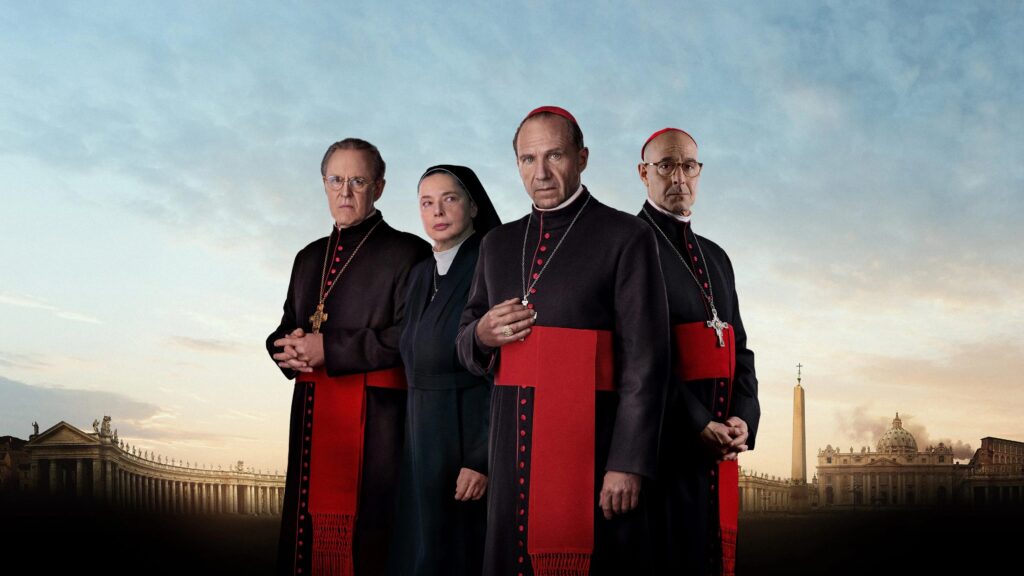
Conclave is rounded up with precision and balance, leaving no element out of place. Even though Ralph Fiennes leads the story as the dean organizing the papal conclave after the pope’s death, he is not the main character because it is not about him. He acts as the conductor of this magnificent orchestra, where every element—be it the nuanced performances of the ensemble cast, the meticulous cinematography, or Edward Berger’s refined direction—works harmoniously. Conclave masterfully blends drama and mystery, delving into the secretive rituals of electing a new pope while exploring universal themes of power, morality, and integrity that transcend religion. With its elegant visual style, suspenseful narrative, and subtle critique of the Catholic Church’s struggle to adapt to a changing world, the film stands as both an engrossing thriller and an incisive political and religious commentary. (5/5)
The Substance by Coralie Farget

The Substance was the greatest surprise of the year, blending visceral horror with a sharp critique of society’s obsession with youth and beauty. Directed by Coralie Fargeat and starring Demi Moore, it follows Elizabeth Sparkle, a former aerobics star who undergoes a rejuvenation process that alternates her between youthful and aged versions of herself, using graphic and unsettling imagery to explore fears of aging and mortality. With striking visuals, 1980s pop culture references, and minimalist settings, the film immerses viewers in its tense atmosphere while critiquing patriarchal attitudes and internalized beauty standards through a distinctly female perspective. Drawing on influences from Hitchcock, Kubrick, and De Palma, it transcends traditional horror to deliver a deeply unsettling yet poignant social commentary on the pressures women face to maintain impossible ideals. (4.7/5)
Emilia Pérez by Jacques Audiard

Emilia Pérez is a political tour de force and a bold, genre-defying work by Jacques Audiard, blending realism and fantasy to tackle themes of gender identity, love, justice, and redemption. The film follows Emilia, a former cartel boss who transitions and becomes a human rights lawyer dedicated to helping families of the disappeared—an ironic and tragic twist given her own past involvement in such crimes. Karla Sofía Gascón delivers an authentic and emotionally charged performance as Emilia, supported by standout roles from Zoe Saldaña as a conflicted lawyer and Selena Gomez as the vulnerable wife of a drug lord. With meticulous direction, a striking visual style mixing sobriety and flamboyance, and innovative use of music as an emotional monologue rather than mere entertainment, the film transcends its narrative to explore universal themes of guilt, transformation, and belonging. The film’s portrayal of transgender identity has sparked debate, with some praising its representation and others criticizing it for perpetuating harmful stereotypes. Nevertheless, Audiard crafts an intimate yet socially resonant tragedy that is both elegant and audacious, making Emilia Pérez a must-watch. (4.6/5)
I’m Still Here by Walter Salles
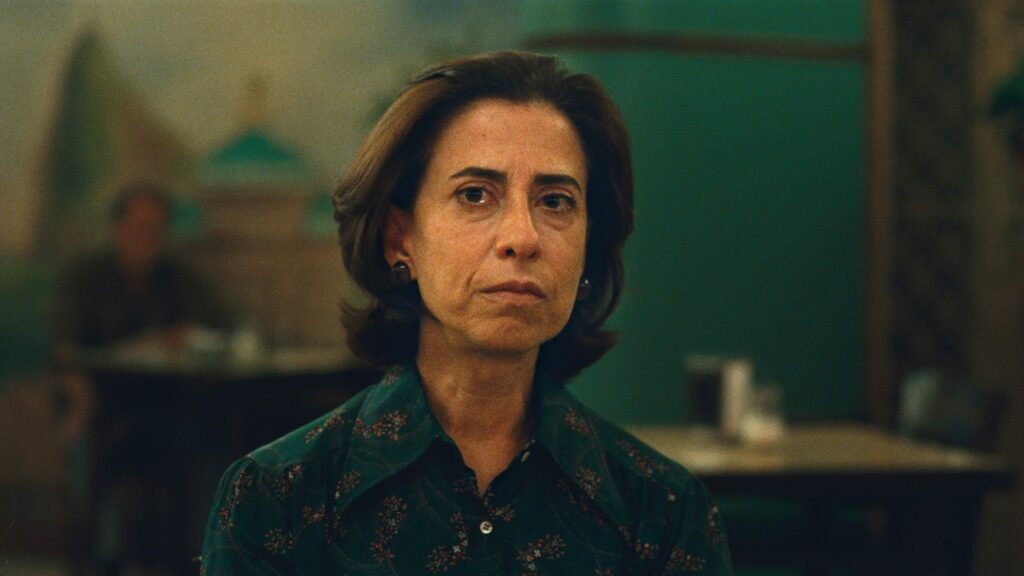
Walter Salles’ I’m Still Here is a deeply moving political drama set during Brazil’s military dictatorship of the 1970s, chronicling the true story of Eunice Paiva’s relentless fight to uncover the fate of her husband, Rubens Paiva, a former congressman abducted and disappeared by the regime. Through Eunice’s perspective, portrayed powerfully by Fernanda Torres, the film captures the personal and societal toll of authoritarian oppression, emphasizing themes of resilience, love, and justice amidst unimaginable loss. Salles masterfully balances intimate family moments with the broader horrors of state violence, creating a poignant reflection on the enduring human spirit. While it avoids graphic depictions of torture, its emotional weight lies in its portrayal of a family’s survival and hope in the face of systemic brutality. With its universal relevance to contemporary struggles against authoritarianism, I’m Still Here stands as both a memorial to past injustices and a call to vigilance in protecting democracy. An urgent and necessary film for today’s dark times! (4.5/5)
Best Series (long film!)
Disclaimer by Alfonso Cuarón

Disclaimer by Alfonso Cuarón is a daring seven-hour cinematic odyssey that defies traditional storytelling, blending psychological tension, complex narratives, and provocative themes. The series operates on dual narrative planes: the raw, emotive performances of the cast and a detached narrator whose clinical tone creates a dissonance that forces viewers to question the reliability of the story. Exploring themes of guilt, memory, and subjective truth, Disclaimer presents events from multiple perspectives, with the central woman’s account steeped in ambiguity and moral complexity. Explicit content warnings in the streaming platform (Apple+) serve both as thematic devices and provocations, heightening the uneasy anticipation of its darker elements. While labeled a thriller, it unfolds primarily as a harrowing family drama addressing grief, trauma, and loss, with the thriller aspect emerging only near the end. Captivating performances, particularly by Lona George and Leslie Manville, anchor the film’s emotional intensity, with Manville’s unsettling descent into desire and fantasy of her son, challenging moral boundaries. Demanding patience and emotional investment, Disclaimer pushes thematic and structural boundaries, leaving audiences to grapple with its contradictions and lingering questions about human relationships and the nature of truth. (4.7/5)
Best Restored/Revived Release
Bona by Lino Brocka
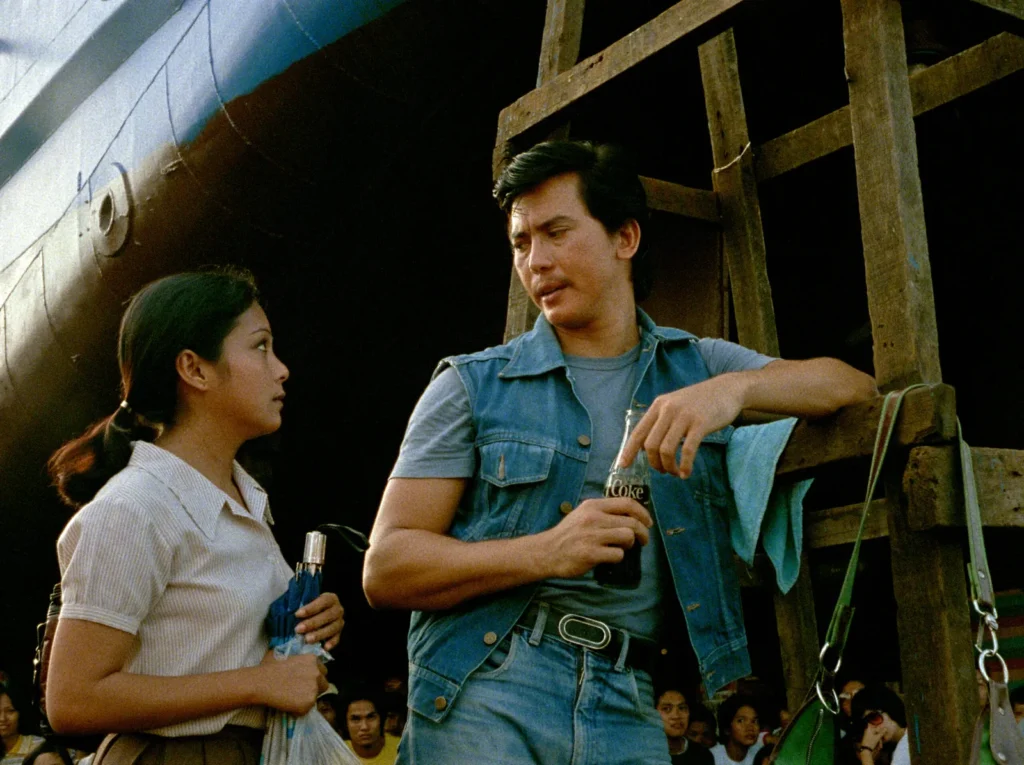
Bona is a powerful melodrama (I love melodramas) that has not got old even though it was released 44 years ago. Now in a 4k restored release. It is one of Lino Brocka’s masterpieces, rooted in the social and cultural realities of the Philippines while addressing universal themes of oppression, power, and resistance. The film tells the story of Bona, a young woman from a marginalized background who sacrifices herself for Gardo, a man who exploits her devotion, serving as a metaphor for societal inequalities and cycles of domination. Brocka uses cinema as a tool of resistance, capturing moments of oppression and struggle through intense emotional storytelling and visual choices that critique systems of power. Bona transcends its specific context to reflect on the human condition universally, with Nora Aunor’s visceral performance amplifying its emotional depth. Brocka’s work remains a testament to cinema’s potential as an act of resistance and a profound reflection on desire, freedom, and injustice. An atemporal masterpiece! (5/5)
 Honorable Mentions
Honorable Mentions
When Fall is Coming by François Ozon

François Ozon’s When Fall is Coming is a delicate, slow-burn mystery inspired by a real family story, unfolding amidst the eerie beauty of Burgundy’s autumnal forests. The film centers on Michelle (Hélène Vincent), a septuagenarian living in the countryside, whose strained relationship with her daughter Valérie (Ludivine Sagnier) takes a darker turn after Michelle accidentally serves toxic mushrooms during a family dinner, nearly killing Valérie. This event deepens existing tensions. Layered with themes of forgiveness, memory, and reckoning with the past, the film’s ambiguity leaves viewers questioning whether Michelle’s actions were accidental or intentional. With restrained performances, subtle foreshadowing, and a hauntingly atmospheric setting, Ozon crafts an intricate exploration of hidden histories and unspoken emotions that lingers long after the credits roll. (4.2/5)
Gladiator II by Ridley Scott
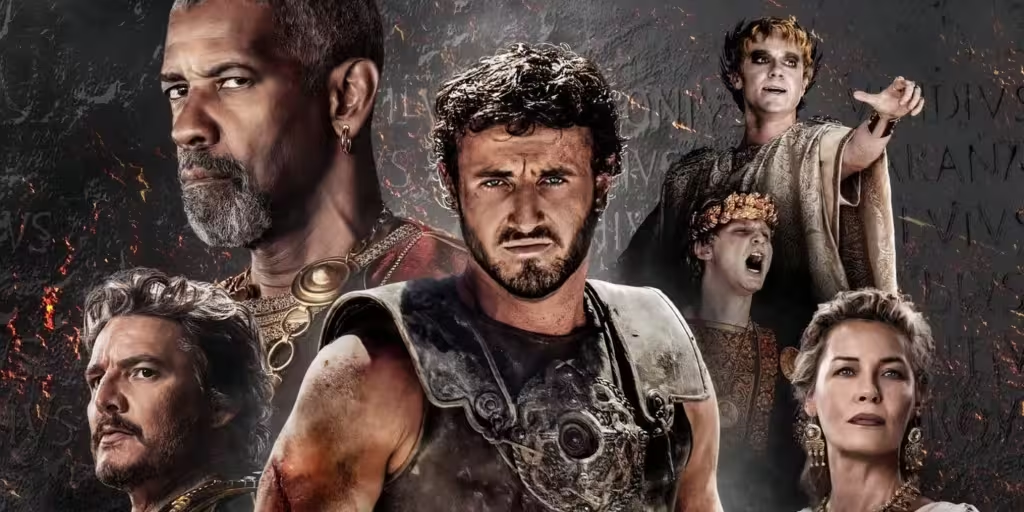
Ridley Scott’s Gladiator II revisits the epic grandeur of the original while infusing it with Shakespearean themes of power, betrayal, and moral ambiguity, resulting in a bold yet uneven sequel. The story follows Lucius (Paul Mescal), grandson of Marcus Aurelius, as he rises from slavery to seek revenge against a tyrannical emperor, echoing the narrative arc of Maximus but enriched with tragic depth and political intrigue. Mescal delivers a compelling performance, balancing vulnerability and moral complexity, while Denzel Washington’s charismatic role adds gravitas, albeit occasionally tipping into excess. The film excels in its immersive action sequences and lavish visuals, though some choices, like the Colosseum’s transformation into a shark-filled aquarium, verge on absurdity. At its core, Gladiator II explores themes of legacy, justice, and ambition through a Shakespearean lens but struggles to consistently land its emotional impact. While some will admire its ambition and theatricality, others may find its excesses detract from its resonance, leaving its ultimate legacy open to interpretation. (4/5)
Joker Folie à Deux by Todd Phillips

What I loved the most about Joker: Folie à Deux was the boldness of its creators. They dare to disappoint their audience in the name of their story. I loved seeing the Joker descend into his most vulnerable and profoundly disturbed mind, making choices that challenge both himself and the audience. Todd Phillips crafts a sequel that is not just a continuation but an introspective commentary on madness, violence, and the blurred lines between heroism and villainy. By dismantling traditional superhero tropes, the film explores fantasy as a destructive force, with musical elements—enhanced by Lady Gaga’s surreal presence—adding a chaotic yet captivating layer to Arthur Fleck’s descent. Joaquin Phoenix delivers an intense performance, portraying the Joker’s fractured psyche with raw complexity, while the film raises unsettling questions about mental health, accountability, and society’s perception of cruelty versus insanity. Subtle yet deeply disturbing, Joker: Folie à Deux critiques its predecessor and the superhero genre itself, leaving viewers shocked by its breathtaking conclusion and forcing them to confront uncomfortable truths about violence, fantasy, and reality. (4/5)
Anora by Sean Baker
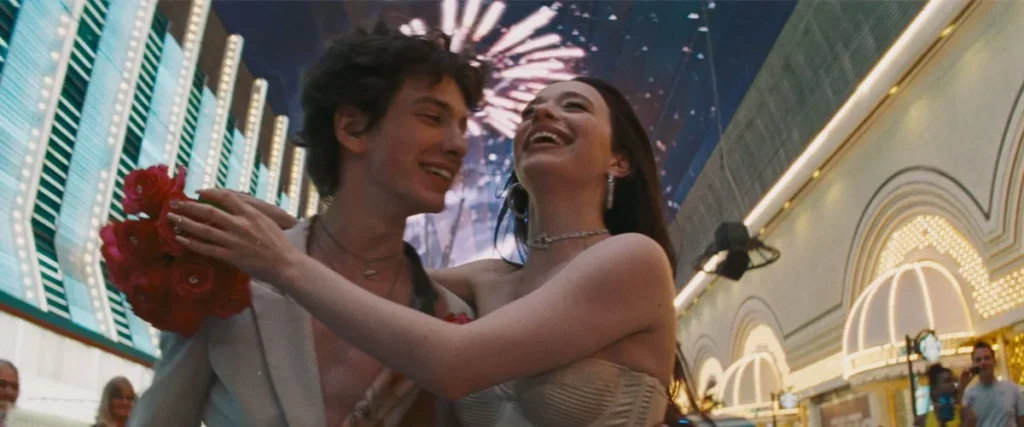
Sean Baker’s Anora is a vibrant yet predictable exploration of sex, survival, and systemic inequality, blending comedy, drama, and social commentary. The film begins with the energy of a music video before transitioning into a grittier narrative that critiques romanticized tropes, particularly by subverting the Pretty Woman storyline. Mikey Madison delivers a standout performance as Ani, portraying her with vulnerability and fierceness, while the supporting cast adds emotional depth. Though the screenplay lacks originality and feels overly long, Baker’s dynamic direction and Drew Daniels’ striking cinematography keep the film engaging. With nuanced portrayals of prostitution and character-driven moments reminiscent of John Cassavetes’ exploration of everyday banality, Anora humanizes its protagonist without resorting to simplistic moral judgments. Despite its flaws and overestimation by some, the film captivates through its layered storytelling. (3.8/5)
 Greatest Disappointments
Greatest Disappointments
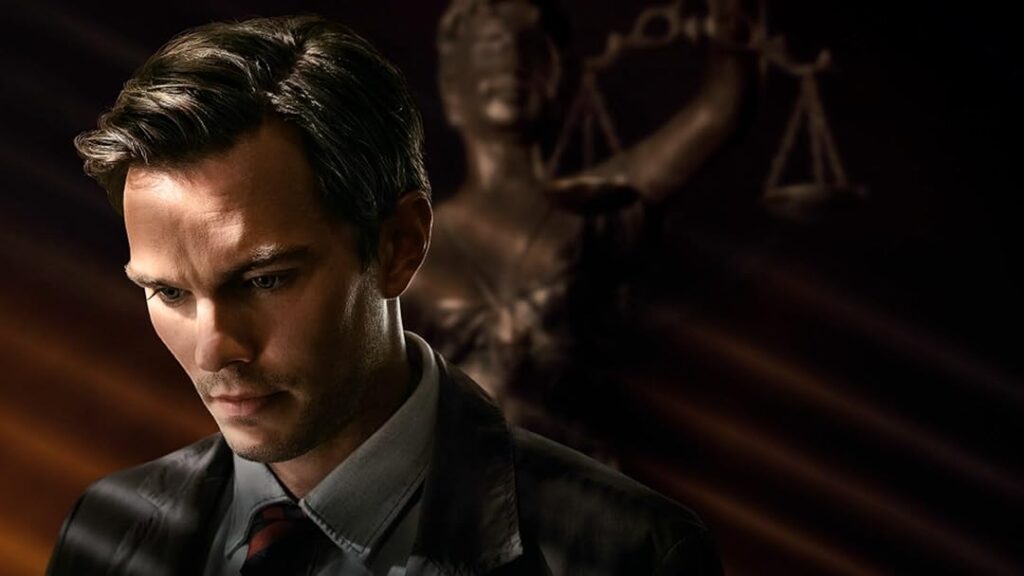
Juror #2, directed by Clint Eastwood, is a courtroom thriller that ultimately feels predictable and overly drawn out. From the beginning, the film lays out all the pieces of its mystery for the audience, leaving little room for suspense as the characters remain oblivious to the truths already revealed. This lack of intrigue results in a tedious unfolding of events, with an ending that overstays its welcome through multiple false conclusions. Just when viewers think the film is wrapping up, another scene follows, and then another, culminating in an open-ended finale that feels unnecessary and unsatisfying. While Eastwood’s craftsmanship is evident, this is far from his best directorial effort, as the film struggles to maintain engagement and fails to deliver a compelling resolution. That said, Nicholas Hoult deserves praise for his performance, continuing to prove with each new role that he is becoming one of the most indispensable actors of his generation. (2.5/5)

Back to Black is a sincere but ultimately underwhelming biopic that offers a tender, family-oriented portrayal of Amy Winehouse’s life while failing to capture the depth and brilliance of her artistry. Directed by Sam Taylor-Johnson, the film focuses on Amy’s personal relationships, particularly her bond with her grandmother and her complex dynamic with her father, but often glosses over the intensity of her genius and struggles. Marisa Abela delivers a competent yet uninspired performance, singing Amy’s songs herself—a choice that, while authentic, struggles to convey the uniqueness of Winehouse’s iconic voice. The film shines in its exploration of Amy’s love for jazz, encapsulated in a standout moment where she declares, “I am jazz,” but its narrative remains surface-level and lacks the emotional immersion of stronger biopics. Supported by Amy’s family and foundation as a counterpoint to the 2019 documentary Amy, Back to Black provides a respectful homage with an elegant soundtrack by Nick Cave but ultimately leaves viewers yearning for a more profound and daring exploration of the singer’s inner world and unparalleled talent. (2.5/5)
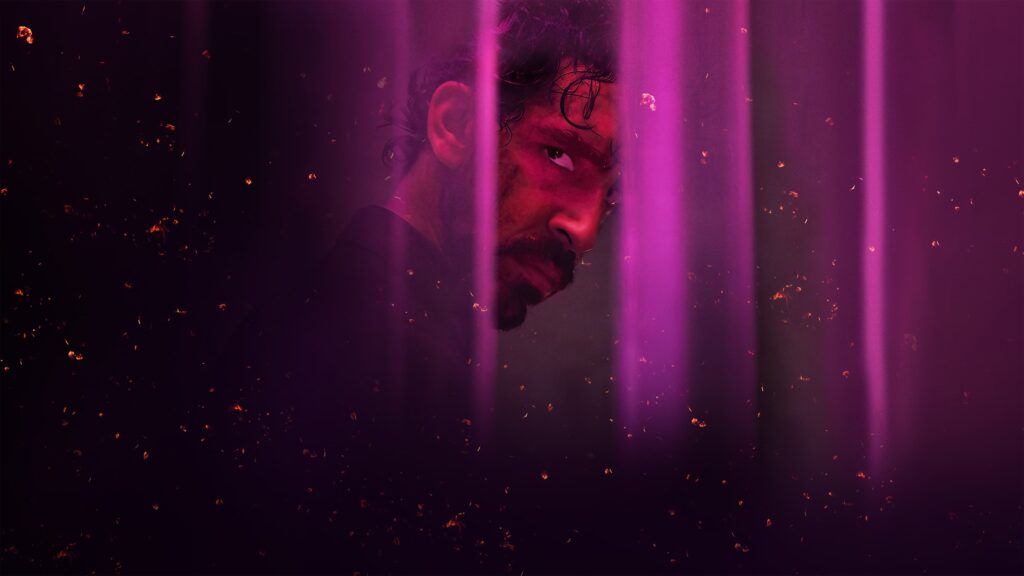
Dev Patel’s Monkey Man ambitiously combines crime-action cinema with Indian mythology, social critique, and martial arts, telling the story of a young man who, inspired by the Hindu figure Hanuman, dons a monkey mask to seek revenge against corrupt developers responsible for his mother’s death. However, the film falters under its grand ambitions, with excessive slow motion, erratic visuals, and an overload of clichés overshadowing its narrative clarity. Attempting to tackle numerous themes—economic exploitation, personal vendetta, prostitution, and religiosity—the plot becomes convoluted and disengaging. The portrayal of hijras as warriors further adds to the inconsistency, shifting the focus from personal revenge to chaotic action spectacle. While Patel’s dual role as director and protagonist shows his ambition to transition into action-centric storytelling, the film’s overstretched narrative and stylistic excesses fail to deliver a cohesive or impactful experience. (2/5)